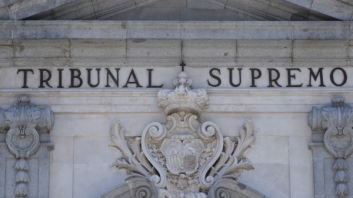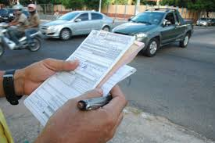THE NEW MUNICIPAL PLUSVALUE TAX
Before entering into the study of the judgment of the Constitutional Court (TC) of October 26, 2021, which declared this tax unconstitutional and of the Royal Decree-Law 26/2021 that, as a consequence of said judgment has adapted the Regulatory Law of the Local Haciendas (LRHL) should start from the basis of the concept of what is a Tax on the Increase in the Value of Urban Land (IIVTNU) popularly known as Municipal Plusvalue Tax. Read more...
In light of the ruling of the Court of Justice of the European Union dated 3rd March 2020, we will try to make a review as clear as possible in relation to the famous IRPH clause and its eventual consideration as abusive. Read more...
IRPH INDEX MAY BE CONSIDERED ABUSIVE
The Advocate General of the Court of Justice of the European Union (European Court) has opened the door for judges to declare the mortgages referred to IRPH abusive and, if so, that clients can be compensated for that. The final decision of European Court would affect thousands of mortgage loans. Leer más ...
STAMP DUTY IN MORTGAGE DEED TO BE PAID BY THE CUSTOMER
DRIVING LICENCE POINTS TO BE REFUNDED BY TRAFFIC AUTHORITY IF THE TAX OFFICE NULLIFIES A FINE
A recent judgment ruled by the Contentious-Administrative Court of Madrid has condemned the General Directorate of Traffic (DGT) to return the driving licence points deducted to a driver to whom the Tax Office had previously annulled a fine for being wrongly notified. In other words, the driver was punished with an economic fine and the deduction of points. The Tax Office processes the economic fine matters; meanwhile the points are a matter whose competence belongs to the Traffic Office. The Contentious-Administrative Court also condemned the DGT to pay the legal costs of the case.
ANOTHER FRONT FOR THE BANKS: LAWSUITS OF PEOPLE AFFECTED BY THE FAILED PURCHASE OF PROPERTY
In the midst of the wave of claims for floor clauses and mortgage costs, the banks are also facing another snowslide of lawsuits. After a 2015 judgment, the Supreme Court opened the door to those affected by the bankruptcy of developers during the housing bubble to recover the monies paid in the purchase of properties that never came to see the light.
HOLIDAY LETTING CONTRACTS DECREE PARTIALLY NULLIFIED BY THE CANARIAN SUPREME COURT OF JUSTICE
The Supreme Court of Justice of Canary Island (Tribunal Superior de Justicia de Canarias or TSJC) has nullified four provisions of the Decree 113/2015 that regulates the Holiday Rental Agreements. Among them the articles that prohibits the provision of accommodation services with tourist purposes in dwellings located in touristic areas in touristic or mixed (residential–tourist) use plots. The TSJC partially estimated the appeals of the claims enacted by the Spanish Federation of Housing for Tourist Uses and the National Committee for Markets and Competition. The judgment nullified many articles of the Canarian Decree 113/2015 for subordinating the delivery of documentation for the beginning of the activity to the registration in a Registry.
WITHOUT REVISION OF FINAL JUDGEMENTS RELATED TO FLOOR CLAUSE
In a resolution dated April 4, 2017, the Supreme Court dismissed an appeal and stated that it would not review the abusive floor clause ruled before the judgment of the European Court recognizing the total retroactivity of the nullity of the floor clauses. According to the judgment of the European Court dated December 2016 those affected by the floor clauses could receive all of what was unduly collected and not only from May 2013 onwards but from the date on which the credit was granted.
CAN WE CLAIM MUNICIPAL PLUSVALUE TAX REFUND?
We have been informed these days that the Constitutional Court has annulled several articles of the Guipúzcoa foral law in relation to the Increase of the Value of Urban Land (Municipal Plusvalue Tax) assuming that it is against the principle of economic taxation capacity when the sale of the property has been made with losses (ie if it was sold at a lower value than the value for which it was acquired). It should be noted that the ruling refers to the foral (regional) rules but does not enter into the unconstitutionality of the Local Entities Taxation Law (LRHL), although the articles of the law are identical to that of the LRHL (articles 104 and 107). This would force the legislative power to modify the law to match it to the Constitution, because if the articles of the law are unconstitutional, logically should be the LRHL.
WILL THE BANKS FREELY REFUND THE FLOOR CLAUSES WRONGLY CHARGED?
The government approved on 20 January 2017 the Royal Decree-Law 1/2017 in relation to the proceeding to refund the floor clauses. In relation to this Royal Decree-Law it might be necessary to recall that neither the Supreme Court judgment of 2013 nor the European Court judgment of December 2016 nullified all the floor clauses...
AGAIN WITH THE FLOOR CLAUSES
 The most important thing is not the nullity of the clause but the limitation of the effect of its retroactivity
The most important thing is not the nullity of the clause but the limitation of the effect of its retroactivity
In a previous blog we made clear that we were waiting for the resolution of the European Court of Justice in relation to the retroactivity of the floor clauses. This blog was partially closed in May 2016 pending of the judgment whose publication took place on December 21, 2016 and echoed by all the media. This column summarized the background to what the floor clause is. I even recommend reading the article by Manuel Llamas in Libre Mercado: "In Favour of the Floor Clauses, Against the Judicial Populism", thus we can contrast the different opinions against and favour of the mentioned clause.
WHAT IS CATASTRAZO (CADASTER PUNCH)?
According to the specialized press, the Royal Decree on tax measures announced on Thursday, December 1, 2016, which came into force on December 3, 2016, includes an update of the cadastral values for 2017 that will affect 2,452 Town Halls. This measure has a direct impact on the IBI (rates) since this tax is due on 1st January of each year. The IBI is a municipal tax whose amount depends on the cadastral value of the property. When raising the cadastral value, logically increases the IBI.
PLUSVALUE TAX - THE DEED OF PURCHASE AND THE DEED OF SALE MAY PROVE THE DEPRECIATION OF THE PROPERTY
The so called Municipal Plusvalue Tax or Tax on the Increases Urban Land Value (IVTNU) is a direct facultative council tax. The taxed property are those ones of urban character and its liquidation is based on the cadastral value. The taxpayer in the case of transmissions for profit (gifts or inheritances) is the person who acquires the property or the one for which the real estate right (donee or inheritor) is constituted. If it comes to transmissions for consideration (purchase) it is the transferor who pays what. If the person required to pay is non-resident he will become replacement of the taxpayer. Note that do not apply to the Administration agreements that may exist between the parties.
DID THE CONSTITUTIONAL COURT NULLIFY ALL THE JUDICIAL RATES?
On 29th July 2016 became public the judgment of the TC (STC 140/2016) which resolved the appeal against the "Law 10/2012 amending certain rates are regulated in the field of Administration of Justice and the National Institute of toxicology and Forensic Science"declaring the unconstitutionality and invalidity of the rates set for both access to the Courts as to the application for considering that the amounts were disproportionate and violated the right to the effective judicial protection under Article 24.1 of the Spanish Constitution.
PLUSVALUE TAX ON FORECLOSING
A client recently inquired about the payment of the Tax on the Increased Land Value (also known as Municipal Plusvalue Tax) that the Town Hall had turned him following the transfer of ownership as a result of foreclosure. Besides losing his residence this person received a settlement payment of Plusvalue tax (whose taxpayer is the transferor). This situation happened numerous times until Law 18/2014 of 15 October approving Urgent Measures for Growth, Competitiveness and Efficiency with effect from 1 January 2014. This Act provides an exception to the payment of the Municipal Plusvalue Tax as referred in Article 105.1 of the Law of Regulation of Local Finance. So paragraph c) of that article provides as an exception:
MARRIED AND NON MARRIED COUPLES IN THE EU
CONCERNING PATRIMONIAL MATTERS OF MARRIED AND NON MARRIED COUPLES WITHIN THE EU
In March 2016 a draft agreement for a Council decision concerning the law applicable to property regimes marriages and domestic couples (registered) in situations involving Extra-national rules was adopted within the EU. That is, in the case of couples composed by nationals of different Member States who have property in another Member State, for example in the case of a couple formed by a Spanish national and a British one, resident in Italy and having assets in France. These rules are created to clarify the applicable rules and to make more beneficial for citizens the interpretation of the rules of conflict in these cases. All this, because the internal rules of one Member State differ from other Member States’ internal rules.
WHEN THE LANDLORD DOES NOT WANT TO RECEIVE THE KEYS
Sometimes it has given the event that the lessor/landlord refuses to collect the keys that the tenant wants to hand over, upon
termination of the letting agreement. There could be many reasons to do so, but usually it happens in cases in which the lessor considers that the contract is not finished (if he accepted the keys it
could be considered as a tacit acceptance of the resolution) whilst the tenant considers that it is terminated.
HOW EURIBOR PLUS AFFECTS US
In previous posts we referred to Euribor Plus as a new benchmark for mortgages. The European Monetary Institute Markets (EMMI acronym in English) is the agency responsible for developing this new model. For EMMI Euribor Plus benchmark it is more reliable than the Euribor, therefore less manipulable . More...
WHAT IS AN OFFSHORE COMPANY?
During the last weeks we have been bombarded with information about Panama papers, offshore companies and bank accounts in countries of low taxations rate.
First of all it is necessary to recall that it is completely legal to have an account abroad and it is also legal to set up a company in a country of low taxation. The problem comes when the owner of the bank account or the beneficial owner of the company does not inform the Tax Office of the country where he is resident about the incomes he had abroad. It is supposed that if you are resident in Spain you have to declare all your worldwide Income Tax in this country. Summarising, not all the cases of the so-called “Panama-papers” mean fraud.
ILLEGAL BANK COMMISSIONS
Many times we have found ourselves reviewing our bank statements noting that we have been charged commissions for various reasons. Sometimes it is due to our account is negative and therefore the bank charges an overdraft commission. But there are many kinds of commissions, some are legal and others have been declared illegal.
WILL THE BANK PAY US THE NEGATIVE EURIBOR?
Few years ago it was unthinkable to imagine a sentence like this. However, the Euribor index in February 2016 is negative (0,008 per cent according to the Bank of Spain).
SPANISH NATIONALITY OF CHILDREN BORN IN SPAIN OF FOREIGN PARENTS
Some time ago I was consulted by marriage, both spouses of Colombian nationality. Their daughter was born in Spain but the Register did not accept to grant the child with a Spanish nationality. To make matters worse, another son of the same marriage had been registered as Spanish national. The question is: are Spaniards all born in Spain?.
COMPLEX FINANCIAL PRODUCTS - NULLIFICATION
A recent Supreme Court judgment 22 December 2015 stated that both banking and consumer rules indicate that it must be the financial entity who bears the obligation to clearly explain the financial products it sells and that information must be clear, accurate and complete.
TOURIST RENT IN CANARY ISLAND
The present develops and summarize some aspects of the Vacation Rentals within the Canary Islands, without going into details, because the extent of the issue.
CANARY TOURISM LAW
Law 7/1995 of 6 April, on Tourism of the Canary Islands regulates jurisdiction assumed by Article 30.21 of the Statute of Autonomy of the Canary Islands in Tourism matters. The Canary Islands regulates the field of tourism in two issues:
INHERITANCE AND GIFT TAX BONUS IN VIGOUR SINCE 1 JANUARY 2016
In the Official Bulletin (Gazette) of the Canary Islands number 253 of 31 December 2015 was published the Law 11/2015 of 29 December of the General Budget of the Canary Islands in 2016. The Preamble of the Act states: <<on taxation matters is included the bonus of 99.9% of the Inheritance and Gift Tax for first and second-degree.
DEPORTATION OF FOREIGN CITIZEN REPLACING THE PENALTY
In connection with the deportation of a foreign citizen we should recall that there are two types of deportation. The administrative one (whose resolution corresponds to the field of administrative law) and judicial one (regulated by the criminal law). We refer now to the latter.
THE SUPREME COURT NULLIFIES A BANK LOAN AGREEMENT FOR USURIOUS
The judgment of Supreme Court of 25 November 2015 cancelled a banking contract (consumer loan) on the grounds that it was usurious. The events date back to 2001 when a particular signed a personal loan with a limit of up to 30,000 euros available. The contract set a remunerative interest of 24.60% APR and a default interest consisting of increasing 4.5 points the remunerative interest.
AMENDMENT OF SCHEME OF STATUTE OF LIMITATIONS BY LAW 42/2015
In our Blog we referred to the enactment of Law 42/2015 of 5th October, amending the Law 1/2000 of 7 January on Civil Proceedings (LEC). In that column we made a brief reference to changes in the LEC. However, not only the LEC was modified but also the statute of limitations, which was reduced from fifteen to five years in cases of personal legal actions.
COMMUNITY OF OWNERS - LEGAL PERSONALITY - LEASE
LEGAL PERSONALITY OF COMMUNITY OF OWNERS. LETTING CONTRACT SIGNED BY THE COMMUNITY OF OWNERS. LAND REGISTRY.
In Spanish law, the Community of Owners does not have recognised legal personality distinct of the owners that compose it. The ground of this issue is the treatment of a Community of Owners as Community of Assets with the peculiarities of the horizontal division. This does not mean that the Community can not act through its legal representative who is the President.
CONTROL OF ABUSIVE CLAUSES IN MONITORY PROCEEDING
REGULATION OF SPANISH MONITORY PROCEEDING ALLOWS THE JUDGE TO CONTROL EX OFFICIO THE EXISTENCE OF ABUSIVE CLAUSES
LEGAL PERSONS AS CONSUMERS AND USERS
The term "consumer" has a simple meaning and, in theory easy to understand. We say in theory because the issue has been much talk in terms of European, State and Autonomous legislation. In principle, "consumer" is any person who acts in hiring outside his trade, business or profession. Thus far it is understandable: an entrepreneur or professional can get credit for his company, in whose case he would be acting as a consumer, but can also contract a loan for his own consume or to give destination different to his activity, in whose case it would be clear the consumer trading.
CLASS ACTIONS - CUSTOMERS CAN COLLECTIVELY SUE THE BANK
CLASS ACTION LAWSUIT
CUSTOMERS CAN COLLECTIVELY SUE THE BANK DUE TO NON COMPLIANCE
The Supreme Court judgment of 21 October 2015 accepted the admission of the accumulation of actions brought by several bank customers. According to the judgment, is sufficient that there is a connection between the title and the cause of action accrued in the lawsuit, it does not require that the title and the cause are identical. The determining factor in these cases, according to the judgment, is not the existence of different legal relationships but the connection between the matter of the actions accumulated as to the facts regarding the claims, which justifies the whole accumulated knowledge of the legal actions, which, at the same time, avoids the possibility of contradictory judgments.
HOW TO FACE A TRAFFIC FINE
In the so-called administrative disciplinary proceedings it is where economic sanctions called " fines " are imposed. It is said that in such cases the right of defence is almost null because the Administration is judge and party. This leads in many cases, that after receiving a fine, to desist from any defence, pay and forget about it . We may recall that there are other type of sanctions that are not pecuniary (such as loss of driving license points) . But today we will talk about fines. More...
FLOOR CLAUSES - HOW TO ACT
WHAT IS A FLOOR CLAUSE?
It is a clause stated in Mortgage Loan Deeds, which establishes a minimum payment in mortgage instalments although the interests agreed with the bank are lower. In general, mortgage loans subscribed in Spain have an interest based on a reference rate, such as Euribor (though there are others) plus a margin (diferencial) that varies depending on the lender bank. Más...
AMENDMENT OF CIVIL PROCEEDINGS LAW
On 6 October was published Law 42/2015 of 5 October of Reform the Civil Proceedings Law that came into force on 7 October 2015. Some modifications will take effect on 15 October. More...
EAVESDROPPING ON WIFE´S MOBILE
These week news have referred to the condemn to a two and a half years prison for a person accused of a crime of disclosure of secrets with the aggravating circumstance of kinship. The accused had spied her wife (ex wife) mobile phone to gather evidence of her affair in order to bring it to a divorce proceeding. The judgment issued by Criminal Court 4 of Girona. Currently, (October 2015) the decision is appealed. More...
A REAL TALE ABOUT FORECLOSURE
In relation to the post “How to face a Foreclosing Proceeding” we bring to attention a real (and sad) case. A British couple signed a Mortgage Loan to buy their family home. The amount of the monthly instalments were euro 3,000 that had been paid during the years previous to the crisis. From 2011 problems came and there were late payments. The bank foreclosed (year 2011). Más...
BACK TO THE EUROPEAN INHERITANCE ACCORDING TO THE NEW REGULATION
To the question “Are we fully covered?” mentioned in Canarian Weekly web page in relation to the succession by reason of death, I come back again with a short summary of the law.
The regulation is in vigour since 2012 but applicable form 17th August 2015. It will apply to all people who pass away after such date.
TERRITORY: the Regulation will apply to all international successions, irrespective of the fact that the decedent is citizen of a EU member or not, if produced within EU territory. It is not applicable to Denmark, UK and Ireland (although applicable to those citizens residents in another EU country). More
SPECIAL CASE OF FAMILY HOME FORECLOSED
If the family home is foreclosed, there are particularities to be taken into account. For instance, there is a minimum adjudication price. In addition, the default interest will not exceed 3 times the legal interest and will be only charged on the pending capital. Moreover, the legal cost will not exceed 5% of the total amount claimed in execution. More......
HOW TO FACE A FORECLOSING PROCEEDING
When the mortgagee has failed in paying one or more than one mortgage instalments, the bank enacts an internal procedure to require the debtor to update his situation, including payment of interests and costs. If the default situation continues, the file is sent to the bank legal office who starts the foreclosing proceeding before Court (the competent Court is the one of the situation of the mortgaged property). More...
SEPTEMBER 2015 - CANARY GOVERNMENT WILL REMOVE INHERITANCE TAX IN 2016
Canary Government has promised to meliorate 99 per cent the quota of Inheritance and Gift Tax . Presumably, this will mean a reduction of inheritance renounces to inheritances that have been produced in a high percentage. Somehow, it is reestablished the system in vigour up to July 2012 (exemption of this tax). This will affect first and second degree relatives (i.e.: parents, children, grandparents, grandchildren). The bonus will be applied to succession by reason of death and “inter vivos” donation. According to the General Council of Judicial Power (CGPJ) the renounces to inheritances have been quadruplicated during the last four years (especially in 2013 and 2014). More
AUGUST 2015 - SUCCESION WITHIN EUROPEAN UNION - TAXATION
Many Canarian Weekly readers of different nationalities asked me about the new UE regulation about Inheritance. Questions have been focused to the material law applicable to the Inheritance (national law of decedent, law of last domicile, law of situation of assets) referring to the taxation, this is the application of Inheritance and Gift Tax. More...
AUGUST 2015 - FORECLOSING PROCEEDING - NULLIFICATION
One of the most important news of this week says that the Constitutional Court (TC) nullified a foreclosing proceeding against one domestic violence victim who could not be notified. Prior to analyse the case it is necessary to point out the attitude of the defendant to take the case up to the very end, even in these unfavorable circumstances. More...
AUGUST 2015 - NEW REGULATION OF INHERITANCES WITHIN THE EUROPEAN UNION - APPLICABLE LAW
Regulation EU 650/2012 will be applicable to all civil aspects of any transmission of assets, rights and duties by reason of death, coming from a testacy or intestacy inheritance, to be in vigour since 17th August 2015. More...
JULY 2015 - CIVIL LAW - VOLUNTARY JURISDICTION ACT
UNDERSTANDING THE LAW
(published in Canarian Weekly)
VOLUNTARY JURISDICTION ACT – NOTARIES CELEBRATING WEDDINGS
To exercise our own rights we need sometimes the help of the State to create or develop the conditions to execute them or make them value without being necessary to sue another person (claim). More...
APRIL 2015 - FAMILY LAW- MATRIMONIAL BOND EXTINCTION FROM THE DATE OF THE JUDGMENT AND NOT FROM THE DATE OF NOTIFICATION
The Supreme Court has issued a judgment dated 16th April 2015 number 203/2015 ruling that in relation to the efficacy of a mutual agreement divorce judgment in which one of the spouses could not be notified (due to his death). Therefore, in this case the marriage link was extinguished from the date of the judgment and not from the date of death. More...
MARCH 2015 - TAX - WHAT IS A COMPLEMENTARIA?
“LIQUIDACION COMPLEMENTARIA” AFTER PURCHASING A PROPERTY IN CANARY ISLANDS
After buying a property you have to pay, normally, Transfer Tax (Impuesto de Transmisiones Patrimoniales). In some cases you are exempted of this tax, i.e.: because the one applicable is IGIC (Canary VAT). Mas...
FEBRUARY 2015. APPLICABLE LAW TO A BRITISH INHERITANCE - IT IS RECOMMENDABLE TO GRANT A SPANISH WILL
"VAGARIES OF A SPANISH WILL". Article published in Canarian Weekly newspaper in February 2015.
The editor has received an email with a situation that involves many English people granted Spanish Wills.
I agree with Roscoe (Editor) that it could be interesting to include the matter in this column, so I am reproducing the email and give my opinion afterwards.
Dear Editor.
A number of years ago, my husband and I (and most of our friends in Tenerife) made Spanish Wills, following advice given in your paper and from our accountant. We believed this would make things easier for the survivor when one of us died... Read more...


















































